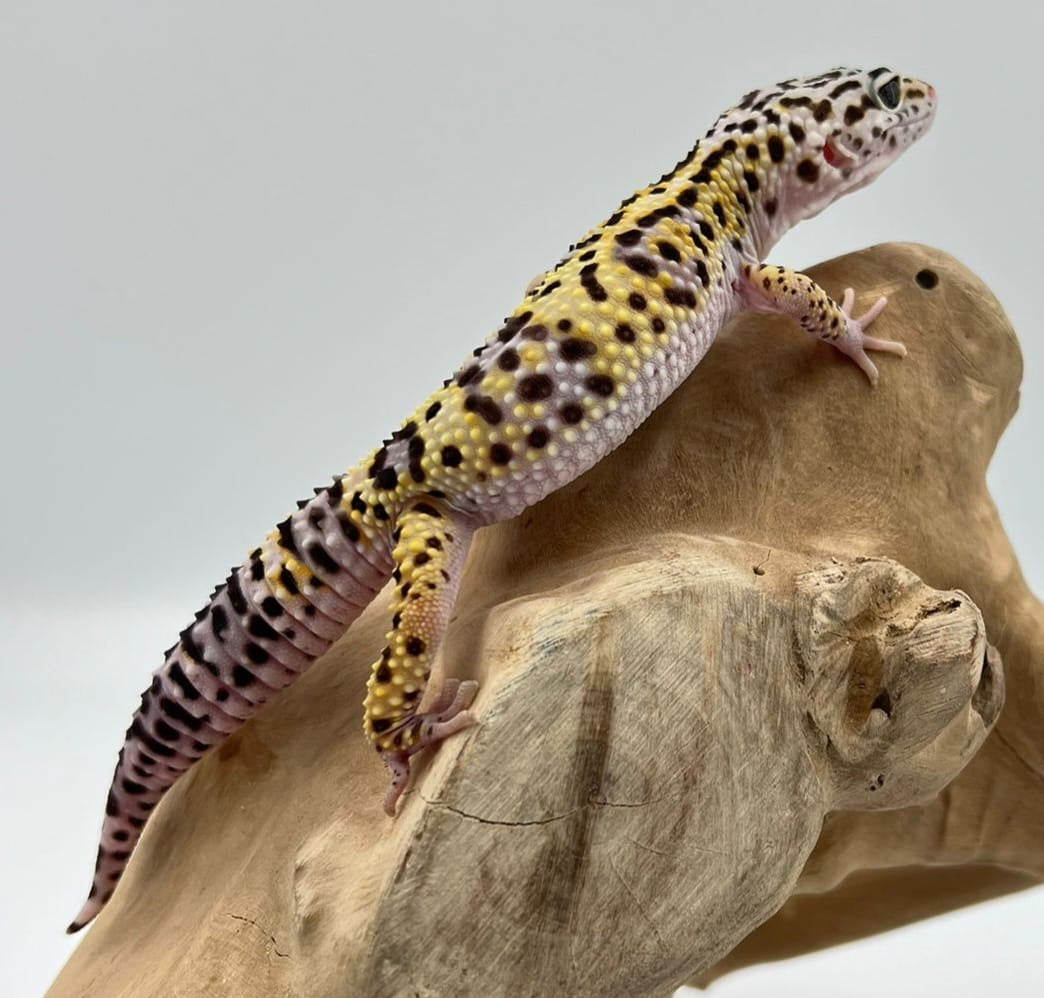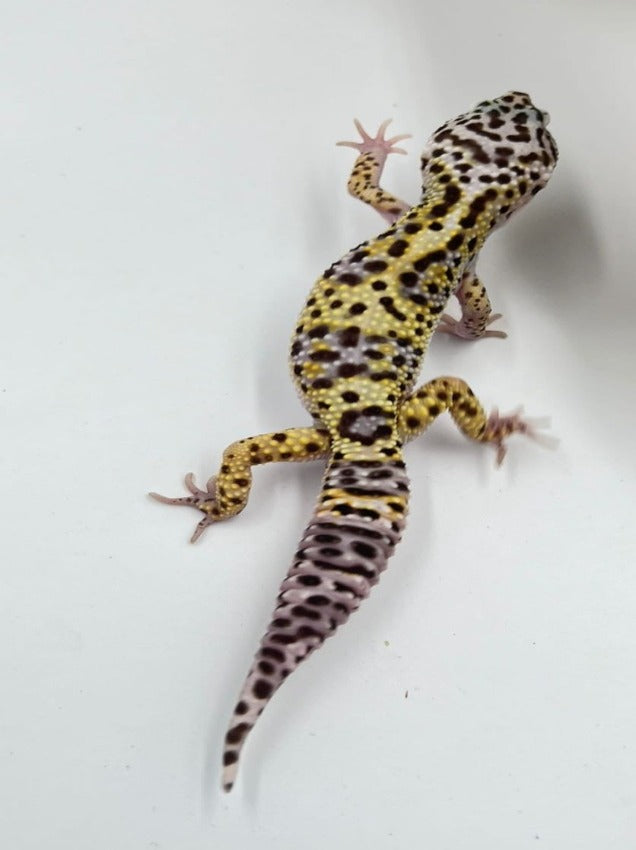Description
Mack Snow Het Tremper Albino Leopard Gecko
Housing:
- Provide a secure enclosure with a secure lid to prevent escapes. A 10-20-gallon tank is suitable for one adult leopard gecko.
- Use a substrate such as paper towels, reptile carpet, or non-adhesive shelf liner to line the bottom of the tank.
- Include hides (at least two), one on the warm side and one on the cool side, to provide security for your gecko.
- A shallow dish for water should also be provided. Ensure it is shallow enough for easy access and cleaned regularly.
Temperature and Lighting:
- Maintain a temperature gradient in the enclosure, with a warm side around 88-92°F (31-33°C) and a cool side around 75-80°F (24-27°C) during the day.
- Use an under-tank heating pad or ceramic heat emitter to achieve the desired temperature. Avoid using heat rocks, as they can cause burns.
- Provide a 12-hour light/dark cycle. Leopard geckos do not require UVB lighting, but they do benefit from exposure to natural sunlight or a low-level UVB light.
Humidity:
- Leopard geckos require a relatively dry environment. Humidity levels should be kept low, ideally between 30-40%. This can be achieved by providing a shallow water dish and proper ventilation in the enclosure.
Feeding:
- Feed juvenile leopard geckos daily and adult leopard geckos every other day.
- Offer a variety of live insects such as crickets, mealworms, dubia roaches, and waxworms. Insects should be appropriately sized, no larger than the space between the gecko's eyes.
- Gut-load insects with nutritious foods such as fresh fruits, vegetables, and commercial gut-load diets before offering them to your gecko.
- Dust insects with a calcium supplement (with D3) two to three times a week and a multivitamin supplement once a week for juveniles and less frequently for adults.
Handling:
- Allow your gecko time to acclimate to its new environment before handling.
- When handling your gecko, be gentle and avoid grabbing or squeezing. Support its body properly and avoid sudden movements.
- Wash your hands before and after handling your gecko to prevent the spread of bacteria.
Health:
- Monitor your gecko's health regularly. Signs of illness include lethargy, loss of appetite, weight loss, abnormal feces, and visible injuries.
Maintenance:
- Clean and disinfect the enclosure regularly to prevent the buildup of bacteria and parasites.
- Remove any uneaten food and feces promptly to maintain a clean environment.
- Replace substrate regularly and clean water dish daily.
"This is the actual animal you will receive"
Order and get 70 reward points
Earn points by signing up for our rewards program


